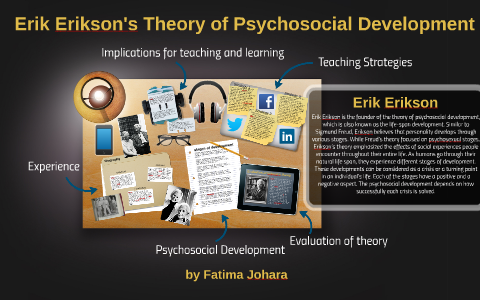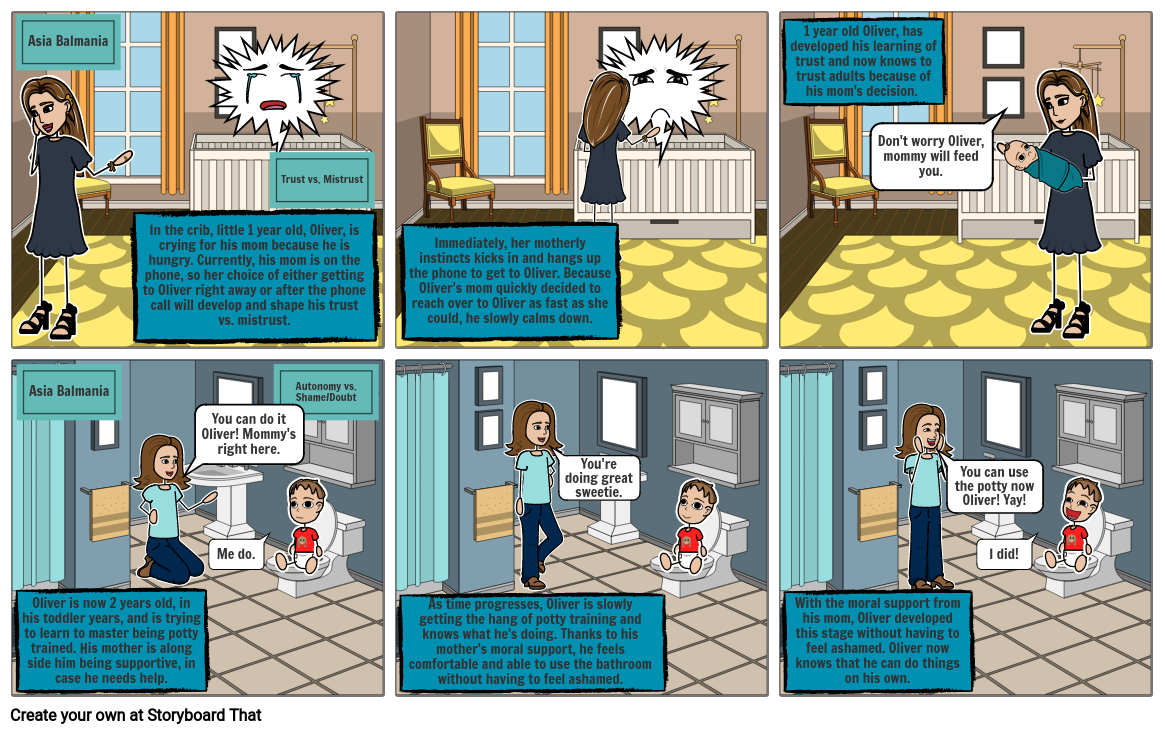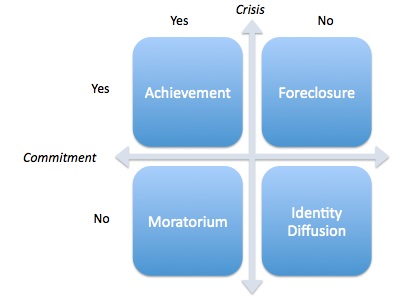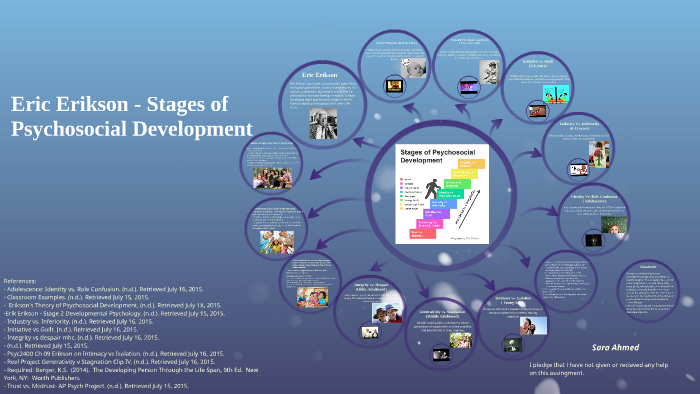Erik Erikson was a psychoanalyst and developmental psychologist who is best known for his theory on the eight stages of human development. According to Erikson, each stage of development is marked by a particular conflict that must be resolved in order to move on to the next stage. Erikson believed that these conflicts are essential for personal growth and development and that they can have a lasting impact on an individual's personality.
The first stage of Erikson's theory is the trust versus mistrust stage, which occurs during the first year of life. During this stage, infants are completely dependent on their caregivers for their basic needs, and as a result, they develop a sense of trust or mistrust based on the reliability of their caregivers. If caregivers are consistently responsive and provide for their needs, the infant will develop a sense of trust in the world and in others. If, on the other hand, caregivers are unreliable or neglectful, the infant may develop mistrust and a sense of insecurity.
The second stage is the autonomy versus shame and doubt stage, which occurs during the toddler years. During this stage, children are developing a sense of independence and control over their own bodies. They begin to explore their environment and assert their will. If caregivers support and encourage this exploration and independence, the child will develop a sense of autonomy. If, however, caregivers are overly controlling or critical, the child may develop feelings of shame and doubt in their abilities.
The third stage is the initiative versus guilt stage, which occurs during the preschool years. At this stage, children are becoming more aware of their own desires and goals, and they begin to take initiative in their own lives. If caregivers support and encourage this initiative, children will develop a sense of purpose and direction. If caregivers are overly restrictive or discourage initiative, children may develop feelings of guilt for their own desires and goals.
The fourth stage is the industry versus inferiority stage, which occurs during the school-age years. During this stage, children are learning new skills and becoming more competent in various areas of life. If they are successful in their endeavors and receive recognition and praise for their achievements, they will develop a sense of industry and competence. If, however, they experience failure or lack support and encouragement, they may develop feelings of inferiority.
The fifth stage is the identity versus identity confusion stage, which occurs during the teenage years. During this stage, adolescents are exploring their own identities and trying to figure out who they are and what they want to be in the world. If they are able to successfully explore and integrate different aspects of their identities, they will develop a sense of identity. If, however, they are unable to explore and integrate their identities, they may experience identity confusion.
The sixth stage is the intimacy versus isolation stage, which occurs during young adulthood. During this stage, individuals are focused on forming close relationships with others and developing a sense of intimacy. If they are able to form close and meaningful relationships, they will develop a sense of intimacy and connectedness. If, however, they are unable to form close relationships, they may experience feelings of isolation and loneliness.
The seventh stage is the generativity versus stagnation stage, which occurs during middle adulthood. During this stage, individuals are focused on contributing to the next generation and making a positive impact on the world. If they are able to do so, they will develop a sense of generativity and purpose. If, however, they are unable to find a sense of purpose or contribute to the next generation, they may experience stagnation and a lack of fulfillment.
The final stage is the ego integrity versus despair stage, which occurs during late adulthood. During this stage, individuals reflect on their lives and the choices they have made. If they







